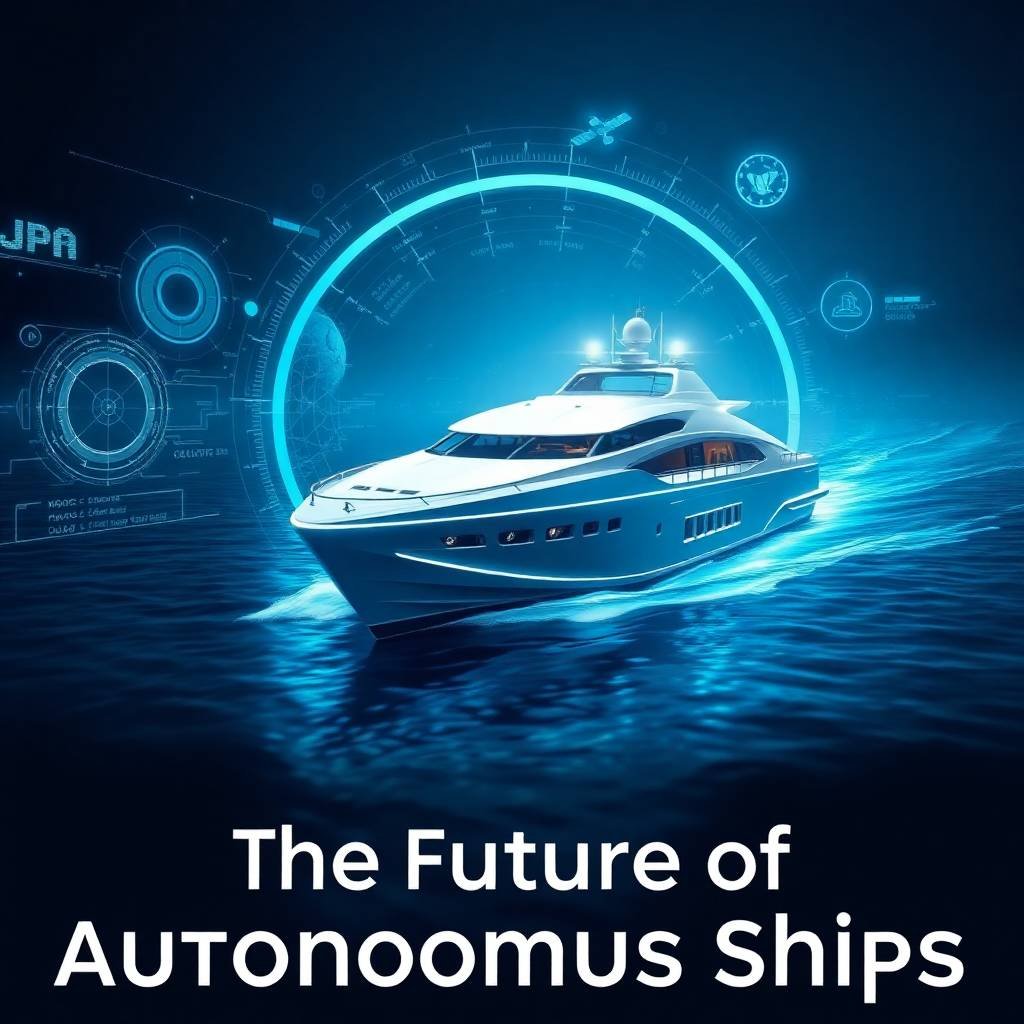Introduction
The maritime industry is on the brink of a technological revolution with the advent of autonomous ships. These vessels, equipped with advanced AI and sensor technologies, promise to transform how goods are transported across the seas, offering unprecedented levels of efficiency and safety. As the world moves towards automation, autonomous ships are poised to become a staple in commercial shipping, research, and defense.
Understanding Autonomous Ships
What are Autonomous Ships?
Autonomous ships are innovative vessels designed to operate independently without the need for direct human control. By utilizing advanced technologies such as artificial intelligence (AI), sensors, and automated systems, these ships can perform a wide range of tasks, from navigation to cargo management, with minimal human intervention.
How Autonomous Ships Work
Autonomous ships are equipped with a combination of sensors, including cameras, radar, and lidar, which allow them to perceive their surroundings and make informed decisions. These sensors feed data into AI systems that process information in real-time, enabling the ship to navigate, avoid obstacles, and optimize routes efficiently. The integration of these technologies ensures that autonomous ships can operate safely and effectively even in complex maritime environments.
Applications of Autonomous Ships
Commercial Shipping
Autonomous ships have the potential to transform the commercial shipping industry by providing more efficient and cost-effective transportation of goods. With the ability to optimize routes and reduce fuel consumption, these vessels can lower operational costs and enhance the global supply chain.
Research and Exploration
In oceanographic research and exploration, autonomous ships can operate in challenging and remote environments, collecting valuable data and conducting experiments without risking human lives. Their ability to endure harsh conditions makes them ideal for long-term scientific missions.
Naval and Defense
In the defense sector, autonomous ships offer significant advantages for surveillance and reconnaissance missions. These vessels can enhance military capabilities by performing tasks without placing personnel in harm’s way, allowing for safer and more strategic operations.
Benefits of Autonomous Ships
Increased Safety
Autonomous ships significantly enhance maritime safety by reducing the likelihood of human error, a major factor in maritime accidents. With precise navigation and real-time decision-making capabilities, these vessels can avoid collisions and navigate challenging conditions more effectively.
Operational Efficiency
Autonomous ships can optimize their routes for fuel efficiency and time savings, leading to reduced operational costs and environmental impact. By minimizing the need for human crews, these vessels can operate continuously, maximizing their utilization and efficiency in global shipping networks.
Challenges and Considerations
Regulatory and Legal Issues
The widespread adoption of autonomous ships faces significant regulatory challenges. Existing maritime laws and regulations need to be updated to accommodate unmanned vessels, ensuring that they can operate legally and safely in international waters.
Security and Cyber Threats
Autonomous ships are vulnerable to cybersecurity threats, which could compromise their operations. Ensuring robust cybersecurity measures is crucial to prevent hacking and unauthorized control, safeguarding ships from potential attacks that could lead to catastrophic outcomes.
Future Trends in Autonomous Shipping
Technological Advancements
The future of autonomous ships is marked by continuous technological innovation. Developments in AI, machine learning, and sensor technology promise to enhance the capabilities and reliability of autonomous vessels, making them more efficient and safer.
Industry Collaboration and Investment
Collaboration among industry stakeholders, including shipping companies, technology providers, and regulatory bodies, is crucial for driving the growth and adoption of autonomous ships. Significant investments in research and development are expected to accelerate the deployment of this technology, paving the way for more widespread use.
Conclusion
Autonomous ships are poised to revolutionize the maritime industry by enhancing safety, efficiency, and operational capabilities. With applications ranging from commercial shipping to research and defense, these vessels offer a glimpse into a future where maritime operations are smarter and more sustainable. While challenges such as regulatory hurdles and cybersecurity threats remain, ongoing technological advancements and industry collaboration are paving the way for their successful integration. As the world embraces automation, autonomous ships represent a significant step forward in transforming global maritime operations, promising a new era of innovation and progress on the high seas.

